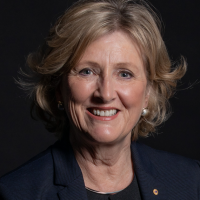Articles / Meticulous time prioritisation


writer
General Practitioner; Author; Past Chairman, RACGP; Past Deputy Chancellor, Monash University
There are 168 hours in each week. Many of us spend an average of about 56 hours per week sleeping, leaving us with over 100 hours of waking time. Taking into consideration some variability in working hours and other fixed commitments from week to week, this may leave a surprisingly flexible 20–60 hours a week, which we may be able to carve out to replenish and restore ourselves.
But how can we do this when the demands on our lives are so excessive, and our flexible hours are consumed by crises and admin?
Try to identify what can and can’t be changed
We may be working over 80 hours a week, struggling with nights on call, whilst sitting for exams and covering a sick colleague. We may be preoccupied with preschool children or a sick wakeful child, relationship problems, elderly parents, a chronic illness or home renovations. Some administrative tasks cannot be delegated. In this situation, meticulous time prioritisation and accepting what we can and cannot change are even more important.
Proactively seek support after a challenging week
A GP career can be fraught with excessive challenges. Patients die unexpectedly, people become angry, peer scrutiny can be harsh, the threat of medicolegal action is real, medical workforce shortages create pressures, and disturbed sleep is common. GPs often find it difficult to create efficiencies at work whilst multiskilling, processing complex information and making hundreds of clinical decisions in time limited consultations. There is a lot to mentally process after we finish work, and rumination can impede our much-needed recovery before our next commitment. Too often, we distance ourselves from people on our time off when what we need is to seek emotional support from family and friends. Debriefing with our own independent trusted GP can also help.
Prioritise your recovery on time off work
In this time pressured environment, we can try to be disciplined in how we allocate our precious flexible hours consistent with our core values and priorities. For example, we can prioritise eating healthy food and exercising with family, helping out a friend or spending time on pleasant pastimes like planning a much-needed holiday, reading a great book or listening to music. We can allocate time for much needed slowing down, idleness, solitude, deep relaxation and sleep.
Outsource – look for things that you can delegate
We can save a lot of time and frustration by delegating our financial, legal and business matters to competent, qualified professionals. We can improve administrative systems and practice management by reducing red tape, paperwork, duplication of tasks or interruptions.
Monitor how you are spending your time
It can be worth filling out a diary to monitor how we are spending our flexible time outside of work to identify ways to free up time. This may involve getting up earlier, declining energy-depleting meetings or unnecessary social events, reducing time spent ruminating or complaining, doing shopping and banking online to avoid queues, outsourcing cleaning and non-essential administrative duties, and spending less time mindlessly scanning TV channels or streaming services, social media, emails and smartphones. Meticulous time prioritisation means saying ‘no’ more.
Don’t fall into the ‘do more’ trap
A common trap is to continually strive to be more efficient by rushing, only to fill new found free time with additional to do lists and more and more tasks. This is counterproductive if we continually defer gratification and selfcare, forgetting to pause and enjoy being in the present moment with our families, our colleagues, our patients – and ourselves.
Take care and take your time
Adapted from ‘Every Doctor; healthier doctors=healthier patient’ coauthored by Prof. Leanne Rowe AM, Dr Vihangi Abeygunawardana, Prof Michael Kidd AO, published internationally by Taylor and Francis. Use code AFL02 to receive 20% off when you order the book at www.everydoctor.org

An Update on Heart Failure in Primary Care

Allergen Introduction – Practical Tips for GPs

Falls Prevention – A Practical, Evidence-Based Update on What Really Works

Vulvovaginal Health – From Childhood to Menopause

writer
General Practitioner; Author; Past Chairman, RACGP; Past Deputy Chancellor, Monash University

Very overestimated
Moderately/slightly overestimated
Quite accurate
Moderately/slightly underestimated
Very underestimated
Listen to expert interviews.
Click to open in a new tab
Browse the latest articles from Healthed.
Once you confirm you’ve read this article you can complete a Patient Case Review to earn 0.5 hours CPD in the Reviewing Performance (RP) category.
Select ‘Confirm & learn‘ when you have read this article in its entirety and you will be taken to begin your Patient Case Review.
